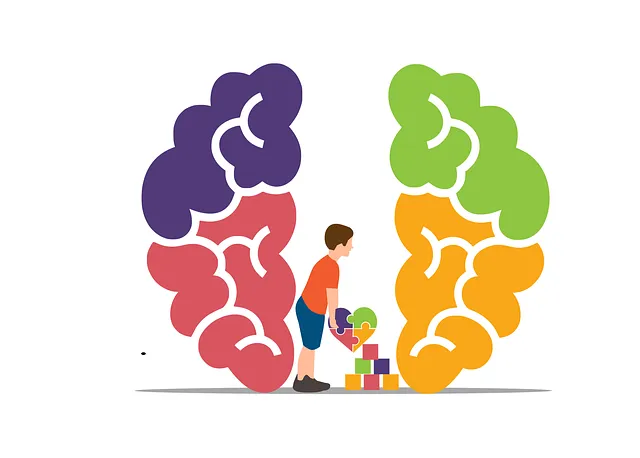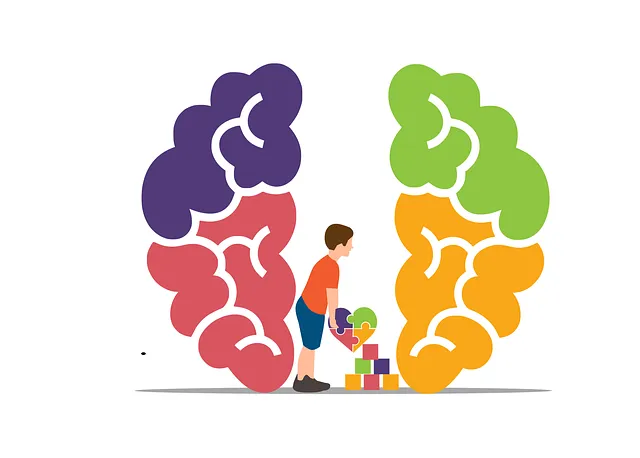Cultural competency is crucial at Boulder Kaiser Permanente, where demographic shifts necessitate diverse healthcare services. Behavioral health reviews highlight its positive impact on patient outcomes and inclusive environments. Through training that incorporates empathy-building practices, mood management techniques, and community outreach, providers foster better relationships, personalized care (like mindfulness practices), and trust in mental health treatment. Boulder Kaiser Permanente's successful implementation, as evidenced by positive patient reviews, sets a standard for other healthcare providers to enhance their cultural competency programs.
Healthcare provider cultural competency training is an essential component of modern patient care, promoting equitable and effective treatment. This article explores the significance of cultural competency in healthcare, drawing insights from Boulder Kaiser Permanente Behavioral Health Services, recognized for its best practices. We delve into successful strategies for designing training programs, focusing on improving cultural understanding among healthcare providers. By examining these approaches, we aim to enhance patient outcomes and foster more inclusive healthcare environments, as evidenced by the positive impact of Boulder Kaiser Permanente’s initiatives.
- Understanding Cultural Competency in Healthcare: Why It Matters and Its Impact on Patient Care
- Boulder Kaiser Permanente Behavioral Health Services: A Case Study of Best Practices
- Designing Effective Training Programs: Strategies for Improving Cultural Competency Among Healthcare Providers
Understanding Cultural Competency in Healthcare: Why It Matters and Its Impact on Patient Care

Cultural competency in healthcare refers to the ability of providers to understand and respect diverse cultural beliefs, values, and practices when delivering care. This is increasingly important given the demographic shifts within populations worldwide, with more individuals from various ethnic, racial, and cultural backgrounds seeking medical services. At Boulder Kaiser Permanente, behavioral health services reviews highlight the significance of this competency in enhancing patient outcomes and fostering a welcoming environment.
When healthcare providers are culturally competent, they can build stronger relationships with patients, improve communication, and offer tailored care. This is particularly crucial in mental health settings where trust and understanding can significantly impact a patient’s willingness to seek help. For instance, integrating mindfulness meditation techniques into therapy sessions not only enhances the therapeutic process but also shows respect for cultures that prioritize this practice. Similarly, risk management planning for mental health professionals should incorporate cultural sensitivity training to ensure effective and safe treatment delivery.
Boulder Kaiser Permanente Behavioral Health Services: A Case Study of Best Practices

Boulder Kaiser Permanente Behavioral Health Services stands out as a prime example of cultural competency training in action. This healthcare provider has consistently received high praise and positive Boulder Kaiser Permanente behavioral health services reviews for its comprehensive approach to addressing diverse patient needs. By integrating sensitive cultural considerations into their risk assessment for mental health professionals, they’ve created a safe and supportive environment. The organization’s focus on risk management planning for mental health professionals goes beyond compliance; it fosters an atmosphere where every patient feels heard and respected.
Through regular workshops and the encouragement of mental wellness journaling exercise guidance, Boulder Kaiser Permanente empowers its staff to navigate complex cultural landscapes with empathy. This proactive stance not only enhances patient outcomes but also encourages a deeper exploration of personal biases, ultimately contributing to a more inclusive healthcare setting. Their commitment to continuous improvement serves as an inspiration for other healthcare providers looking to elevate their cultural competency training programs.
Designing Effective Training Programs: Strategies for Improving Cultural Competency Among Healthcare Providers

Effective cultural competency training for healthcare providers involves a multi-faceted approach tailored to address diverse patient populations and their unique needs. One key strategy is incorporating Compassion Cultivation Practices into the curriculum. These practices encourage empathy, understanding, and open communication, fostering an environment where patients feel heard and respected regardless of their cultural backgrounds or identities.
Additionally, integrating themes related to Mood Management can be valuable. Training should equip providers with tools to navigate complex emotional situations, promoting a safe and supportive atmosphere for both patient and provider. Boulder Kaiser Permanente’s behavioral health services reviews highlight the importance of these strategies, demonstrating improved patient outcomes when healthcare providers are trained in cultural competency and mood management techniques. Beyond training, Community Outreach Program Implementation plays a crucial role in bridging gaps between healthcare systems and diverse communities, ensuring culturally responsive care that meets the specific needs of each population served.
Cultural competency training in healthcare, exemplified by Boulder Kaiser Permanente’s successful behavioral health services, is a game-changer. By understanding and addressing cultural differences, providers can significantly enhance patient care and outcomes. This article has explored the importance of such training, highlighting its impact on improving cross-cultural interactions and promoting equality in healthcare. Implementing effective training programs, as demonstrated by the case study, can foster more inclusive and responsive healthcare environments, ultimately benefiting diverse patient populations, as evidenced by positive reviews of Boulder Kaiser Permanente’s behavioral health services.


